




The Salvation Army is a Christian church and registered charity seeking to share the good news of Jesus and nurture committed followers of him. We also serve people without discrimination, care for creation and seek justice and reconciliation. We offer practical support and services in more than 700 centres throughout the UK. Go to salvationarmy.org.uk/find-a-church to find your nearest centre.
The Salvation Army first published a newspaper called the War Cry in London in December 1879, and we have continued to appear every week since then. Our name refers to our battle for people’s hearts and souls as we promote the positive impact of the Christian faith and The Salvation Army’s fight for greater social justice.
Hearts, according to familiar sayings, can be changed or crossed, stolen or won and made of stone or gold. Many of us will have experienced having our heart broken emotionally when we have been rejected by someone we loved. It’s an awful experience, but the consequences of our heart breaking in physical terms – or going wrong – can be fatal.
That’s why World Heart Day this Monday (29 September) plays an important role in raising awareness of heart health. Somebody who knows about the importance of this is Dr Stephen Brooke.
In an interview in this week’s War Cry, the retired GP tells us about his book, Your Heart in Rhythm with God’s. In it, Stephen explores how medical research proves that emotions have an impact on the working of our heart, echoing the Bible’s teachings about links between mental and physical health.
‘In the Bible we’re told to rejoice with our heart and soul and love God with all of our heart,’ he says. ‘These emotions put our heart into a healthy, coherent rhythm.
‘In a sense, the heart that we’ve been given is a huge clue to the nature of God and to the meaning and purpose of our life on Earth. It is to have a heart connection with our Creator.’
Editor: Andrew Stone, Major
Deputy Editor: Philip Halcrow
Staff Writer: Emily Bright
Staff Writer: Claire Brine
Staff Writer: Ewan Hall
Editorial Assistant: Linda McTurk
Graphic Designer: Mark Knight
Graphic Designer: Natalie Adkins
Email: warcry@salvationarmy.org.uk
The Salvation Army United Kingdom and Ireland Territory 1 Champion Park London SE5 8FJ
Tel: 0845 634 0101
Subscriptions: 01933 445445 (option 1, option 1) or email: subscriptions@satcol.org
Founders: Catherine and William Booth International leaders: General Lyndon Buckingham and Commissioner Bronwyn Buckingham Territorial leaders: Commissioners Jenine and Paul Main
Editor-in-Chief: Major Julian Watchorn
The Salvation Army United Kingdom and Ireland Territory ISSN 0043-0226
The Salvation Army Trust is a registered charity. The charity number in England, Wales and Northern Ireland is 214779, in Scotland SC009359 and in the Republic of Ireland CHY6399.
Printed by CKN Print, Northampton, on sustainably sourced paper


Through his medical training and his Christian faith, Stephen believes there are links between the physical and the spiritual.
‘Science shows that love is actually the strongest force of all,’ he explains, ‘and the Christian faith very much focuses on that. God’s Son Jesus exemplifies the love of God and he shows how, as human beings, we can live in love.’
Stephen is right. Love is at the centre of the Christian faith – love for God and love for other people. The way Christians live out this type of love is often through their care and concern for those who are finding life hard.
Christianity is about being big-hearted and loving others – and that can only be good news for everyone.
When you’ve read the War Cry, why not pass it on ➔ ➔ ➔



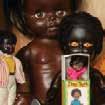


Feature by Ewan Hall
Thunderbirds are go! Sixty years after the show was first broadcast on 30 September 1965, a secret base on Tracy Island – nestled among palm trees and surrounded by the Pacific Ocean –is springing back into life, as the show celebrates its diamond anniversary.
Created by Gerry and Sylvia Anderson, Thunderbirds is a British TV puppet show which follows International Rescue, a secret organisation led by billionaire and former astronaut, Jeff Tracy. With help from Brains, a brilliant engineer, Jeff built five high-tech rescue vehicles, each piloted by one of his sons: Thunderbird 1, a hypersonic rocket; Thunderbird 2, a heavy transporter; Thunderbird 3, a space rocket; Thunderbird 4, a submarine and Thunderbird 5, a space station.
With every vehicle ready to launch into action at a moment’s notice, the Tracy brothers tackle daring missions from their base in the Pacific.
On hand to offer support are agents such Lady Penelope and her chauffeur Parker, who drives a pink RollsRoyce. The team keep in touch via radios, with their trademark sign off: ‘F.A.B.’
In celebration of its anniversary, two episodes from the original series have been restored and released in cinemas. Fans can see International Rescue on the
big screen in Trapped in the Sky – the show’s pilot episode where a sabotaged atomic airliner is in danger – and Terror in New York City – where the team must save the Big Apple from disaster.
For fans wanting more, ITVX is airing a documentary called Thunderbirds: FAB at 60. It celebrates the show’s anniversary with interviews from celebrity fans, filmmakers, composers, producers and family members –including Gerry’s son Jamie and daughter Dee. The documentary explores the show’s origins, lasting impact and its cinematic-style music composed by Barry Gray.
‘I think the family aspect of it is so key to its longevity,’ Jamie Anderson tells the War Cry. ‘Almost without exception, no matter what circumstances a person grew up in – even for those who had different early lives, like growing up in care or without siblings – they can still relate to that family unit. Whether it’s camaraderie and friendship, actual siblings or the parent-child dynamic, there’s an instant relatability which you don’t get in many other shows.
‘You take that relatable family unit and then you have them doing truly aspirational stuff. So a child watches it and goes: “Wow, those are my heroes.”’
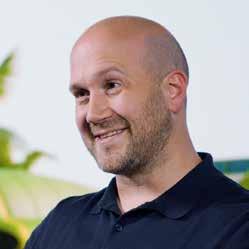
For Thunderbirds fans of all ages, the unwavering commitment of the Tracy family to help those in danger is part of what makes the programme so enjoyable.
And in our own lives, we may long to have someone who comes to our rescue in difficult circumstances. The good news is that there is someone who is always listening, always present, and always ready to help us. That someone is God. Unlike fictional heroes, God doesn’t need a signal or technology to respond. He is with us not just in moments of crisis but in our everyday struggles too. The Bible describes God as ‘our shelter and strength, always ready to help in times of trouble’ (Psalm 46:1 Good News Bible).
If we choose to put our trust in him, we can experience the comfort of knowing that God is always there, year in, year out. Isn’t that fab?
When a group of celebrities got together to discuss what makes Britain great, their answers – reported in GQ magazine – made for interesting reading.
Reflecting on the exquisiteness of British cuisine, football pundit Ian Wright said that ‘you can’t beat pie and mash’, while actor Brian Cox argued that ‘the British breakfast is unbeatable’ – as long as it comes with black pudding and a cuppa, of course.
The good old cup of tea actually popped up in conversation more than once, with Little Mix’s Jade Thirlwall singing the praises of Yorkshire Tea, and comedian Amelia Dimoldenberg saying that no other country can make the beverage ‘in the right way’.
Later, the discussion also began to touch on matters of a more serious nature. Brian Cox described the NHS as ‘unique’ and how ‘we would be lost’ without it.
I can talk to God about anything
Lioness Chloe Kelly spoke of the value she found in the ability of British people to start ‘fighting back’ when the chips are down. And actor Jason Isaacs pointed out that there are ‘many different religions and cultures’ which make up Britain, prompting people to ‘come here for that generosity of spirit’.
Jumping on the GQ bandwagon, I decided to change the question and ask the War Cry team: What’s great about being a Christian? The answers – again – made for interesting (and encouraging) reading.
The best thing about being a Christian, said one, ‘is that you never have to face anything alone as you’ve always got God with you’.
Another said that faith ‘provides a continual source of strength and purpose in my life’. One colleague was happy to report: ‘I am deeply known and loved by God, just for who I am.’
Their responses made me reflect on what my own answer might be. I realised that I could come up with a few. Being a Christian is great because I can talk to God about anything and know that he listens to me. Because he brings me hope when I feel hopeless. Because he’s carried me through terrible times and helps me to keep going. Because his forgiveness never ends. And because he loves me – unconditionally and for ever.
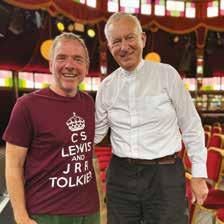
Belle and Sebastian singer Stuart Murdoch has spoken about the role that the Church of Scotland played in the development of the band and of his faith.
In an interview with church communications officer Cameron Brooks, which was reported on the Church of Scotland website, the musician told how, in the band’s early days, he was allowed to live in a flat above the hall of Hyndland Parish Church in Glasgow for free in exchange for carrying out caretaker duties. The band rehearsed and recorded in the hall, before going on to have 12 Top 40 albums.
Stuart also talked of how he felt his faith ‘was reawakened’ when he moved to Glasgow after his life had been ‘completely changed’ by ill health, and he recalled his first visit to a service at the church.
‘I was pleasantly surprised because I had not been in church since I was a kid and it was much more open, friendlier and easier to digest than my memory of it,’ he said.
Stuart is still a member of the choir at what is now known as Broomhill Hyndland Parish Church and, at a recent event in Edinburgh to promote his book Nobody’s Empire, was reunited with the minister who had welcomed him to the church, the Very Rev John Christie.
Interview by Claire Brine
‘What does God think about stripping?’ It’s a question often put to Madison Kinzley and her team of chaplains when they enter strip clubs in London’s Soho district and get to know the women working there.
‘They’ll ask us why we are there, if our aim is to convert them and whether or not God is mad at them,’ says Madison, who, since 2022, has been serving as the strip club chaplaincy co-ordinator for the Christian charity Third Space Ministries.
‘My answer is that I’m not trying to push religion on anyone, but that I do love God. I’ll explain that I don’t think God is mad at women for stripping,
but he loves them and may want something better for them. I’ll also tell the women that they have value – and that includes their bodies.
‘As chaplains, we want everything that we communicate to come from a place of love and non-judgement. I don’t judge the women for what they’re doing. And I don’t believe that God – who is a God of love – is judging them either.’
Every Thursday evening, when Madison and her team meet in a café in Soho, they take time to pray together before spending the next three to four hours visiting a small number of strip clubs in the area. In the dressing rooms, they offer the women cookies and cakes, which helps conversation to flow. They provide a listening ear to anyone who needs it. And they offer prayer.
‘Whatever these girls are facing, Turn to page 6 f


From page 5
we let them know that we are there to support them,’ Madison says. ‘Some of them might be having a traumatic time with their partner, working multiple jobs or struggling with being a single mum. So we try to encourage the women and will pray with them, if they want that. If they tell us that they want to look for a different job or that they need help with specific issues, we can signpost them to the relevant service.’
As well as supporting the women working at the clubs, Madison and her fellow chaplains take time to chat with the managers, bouncers, security team and bar staff. She explains how the chaplaincy team started working in strip clubs in the first place.
‘At Third Space Ministries, there are chaplains working in lots of different spheres, such as gyms and night clubs. Several years ago, the charity started thinking about moving into strip clubs as well. So the chaplains would go in, sit at the bar, and little by little they started
to build relationships with the women working there. They then wrote letters to the managers, offering to serve as chaplains, and doors started to open.
‘When Covid hit and the clubs had to close, the chaplaincy work shut down. Then, when I joined the team in 2022, we had to rebuild those relationships. At first, it was quite awkward. The girls didn’t know if they could trust me. But a manager from one particular club had really liked our chaplaincy team pre-Covid, so she wrote us a beautiful reference letter, which helped us in terms of approaching other clubs and getting through the door. I see it as a miracle that the bosses of these clubs let us in – because there is no reason why they should want us to be there.’
On several occasions, Madison has had conversations with managers and club owners that have surprised her. It’s clear that they value the chaplaincy service that she and her team provide.
She says: ‘One man – who owned a


Madison Kinzley
club that has now shut down – said to me: “If you ever see a girl working here who doesn’t want to be, then she doesn’t have to stay. I give you permission to take her.” I replied: “Sounds good!” It was a powerful moment, because he understood that we just want to bring hope and light to people.’
As Madison has spent the last three years getting to know some of the women working in the strip clubs, she has begun to understand some of the reasons behind their career choice. She explains that none of them see themselves as ‘victims’ of the sex industry.
‘Generally, the women I meet are strong, brave and resilient,’ she says. ‘Some of them are just 18 or 19 years old and are excited to be leaving home and making their own money fast. Other women I’ve met have been working in the stripping industry for 20 years, and they consider themselves career strippers.
‘Then there are also a lot of women in the middle – stay-at-home mums who want a bit of extra cash, or actresses and models who do a bit stripping on the side. I’ve met strippers who are doctors and lawyers. I’ve chatted with a stripper who is a firefighter. A lot of them work multiple jobs.’
But what’s the motivation? Are the women Madison has encountered strippers by choice or necessity?
‘Some women feel there is no other option,’ she says. ‘Maybe at first it was a choice, and they thought: “I’ll work in a strip club for six months, make the money I need, then get out.” But then they get stuck.
‘Often, when I go into the clubs, I’ll meet a new girl who’s about to start her first shift and she’s really nervous about it. When I see her a few weeks later, she tells me that she’s living her best life and that stripping is great. Eight months in, she’s saying that working in the strip club



Madison and her team leave sweet treats in the dressing rooms for the women, as well as the chaplaincy contact details
is the worst decision she ever made and she wants to leave – but by that point she feels that there’s no way out.
‘Like gambling, stripping can be really addictive. One night, a woman might be going home with £20 in her pocket. Another night, she could walk out with £1,000. There’s this feeling of: “If only I can get another lucky night.” So a lot of them keep working at the strip club, hoping to make more money. But the reality is that they’re feeling trapped.’
When the women open up to Madison about the struggles they are facing, she and her team offer kindness and support. She’s aware that a number of the women are suffering with poor mental health.
‘Some of them feel depressed, anxious and hopeless, so we talk about what hope looks like, outside of jobs and money,’ says Madison. ‘If the women are


having difficulties with their partners, we might talk about setting boundaries or – where necessary – safety measures. A lot of the mums talk about their children and how they want their kids to live different lives. If anyone is having financial problems, we try to help them with budgeting.’
Madison and her team are also willing to support the women outside of the strip club, helping them through difficult, stressful or sad times.
‘When a partner of one of the women died very unexpectedly, I saw her almost every day during that first week,’ she says. ‘I helped her to find a new flat and also helped her to move into it. As chaplains, we really do care about these women. They’re not a project. There’s no goal. We do what we do because we love God. We want to share with them the love that God has given to us.’
It’s a love that is proving fascinating to some of the women that Madison meets. She tells me that a number of them have started joining the chaplaincy team for Thursday evening prayer and a short Bible study before they head off to the strip clubs. Some of the women have even made the decision to become


From page 7
Christians, prompting them to leave the industry entirely.
‘The other week I prayed for one girl, asking God to bring her peace, and she told me afterwards that she felt so much love in her heart,’ Madison says. ‘The next week, this girl had bought a Bible. I asked her why, and she said: “You guys talk about the Bible all the time, so I wanted one.” I’ve started sending her Bible verses to read, and we’re talking about them.
‘Since I joined the chaplaincy team, I’ve mentored a number of girls and seen about 15 of them committing their lives to God. A lot of them have left the clubs that they were working in and are no longer part of that world at all. Some of them I have helped to find jobs. One girl got baptised at Easter. It’s very exciting to see them taking that next step.’
While Madison is thrilled to see women embarking on new paths in life, she
is quick to point out that she doesn’t condemn any of the women who choose to remain working in strip clubs. Nor does she condemn the men who choose to go into them.
‘What the girls tell me about the men is interesting,’ says Madison. ‘They say that half the time the men who come in are so lonely that they don’t even want a dance – they just want to sit and talk. So they’ll pay a woman to sit on their lap, maybe, and then just chat with them. Some women have said to me that with all the listening they do, they should be given degrees in counselling.
‘It took me some time to get my head around how I feel about the men, because it’s easy to think of them as predators and the women as victims. But that’s not the case. These men are in a place of huge need. They need God just as much as anyone else.’
It’s a need that Madison recognises in


her own life. She explains that her faith in God has deepened since she began supporting the women in strip clubs, as she has found herself depending on him more and more.
‘Often, when the women are talking to me, I’m saying in my head: “God, I need you. What do you want me to say?” I have to cling on to God with everything I have – and that’s a beautiful thing.
‘I’ve never seen God work so tangibly as he does in strip clubs. There is no reason why these girls should trust me or open up to us, but then I see their hearts start to soften, and that’s down to the powerful nature of God’s love. He’s doing something in their lives.
‘While I never know what the impact of our work might be on the women I meet, my hope is for them to know deep down in their soul that God loves them, that they have value, and that they are worthy of both.’



To mark World Heart Day on Monday (29 September), counsellor and retired GP Dr STEPHEN BROOKE tells how medical research has found links between physical and emotional heart health, mirroring the teachings
in the Bible
Interview by Emily Bright
It’s time for an annual health check in the form of World Heart Day, which takes place on Monday (29 September). The World Heart Federation, which organises the event, bills it as an opportunity to ‘ignite global conversations and engagement, using powerful stories to raise heart health awareness’.
Someone who has their finger on the pulse about cardiac matters is Dr Stephen Brooke, a counsellor, retired GP and author of Your Heart in Rhythm with God’s
‘In all cultures around the world, there’s a recognition that the physical heart is somehow the centre of life, linking mind, body and spirit,’ he says. ‘That has been confirmed by the research of the Heart Math Institute in the United States, which has been studying the links for 30 years.’
The secular institute, based in California, conducts research into communication between the heart and the brain, and its role in managing stress and deepening connections to other people. Its findings, such as how emotions tangibly affect our heartbeat rhythm, echo the Bible’s teachings about links between mental and physical health. Stephen documents the research’s correlations with Scripture in his book.
‘In the Bible we’re told to rejoice with our heart and soul and love God with all of our heart,’ he tells me. ‘We can do that
by worshipping God for all he’s given us, loving people well and pausing to enjoy God’s love, forgiveness and kindness. These emotions put our heart into a healthy, coherent rhythm.’
His claim is backed up with Heart Math research, which has shown that regularly experiencing the emotional states of love, appreciation, compassion, care and forgiveness all contribute to better heart health.
The way that the heart operates is beautiful
The research found that slowing down our breathing to five or six breaths a minute and channelling positive emotions improves heart rate variability – a factor widely reported as helping to reduce stress, boost resilience and improve sleep.
Stephen’s interest in heart health has stemmed from a range of career experiences.
‘I was trained as a doctor according to the western medical model,’ he says. ‘I’ve also trained as a pastor, went to Bible
college for a couple of years, and trained as a counsellor.
‘Then I came across research about the heart and its importance, and I found that the knowledge gave extra depth to my counselling. Ideas such as focusing on the heart and slowing down breathing helped me to bring my clients into a state of calm and peace at the beginning of the session. They were able to hear and engage with what I was saying to them.’
Stephen believes that the complexity of the heart is often underestimated. He explains that, as an organ, it does far more than simply beat in our chest.
‘We have been led to think that the
heart is just a fist-sized bundle of muscle, that simply acts as a pump to send blood through the body,’ he says. ‘While that’s true at one level, the heart is so much more complex than that. The way that it operates, both in terms of its rhythm and its physical mechanism, is wonderful and beautiful.’
He illustrates his point by explaining that the heart has its own brain, ‘a collection of nerve cells, which communicate and have other nerves connecting them. The heart’s brain senses, it assesses, it makes decisions. It perceives the response to circumstances and sends messages.
‘In fact, there’s more messages going from the heart to the head than there are
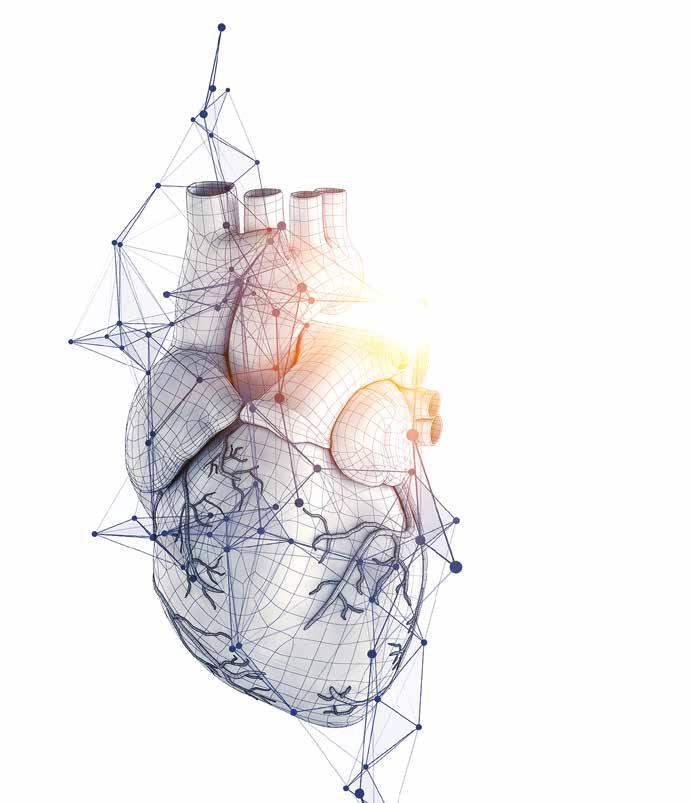

from the head to the heart,’ he continues. ‘There are between 30,000 and 120,000 nerve cells arranged in a few bundles called the plexuses at the back of the heart.’
As a Christian, Stephen attributes such an intricate design to the divine.
‘In a sense, the heart that we’ve been given is a huge clue to the nature of God,’ he says, ‘and to the meaning and purpose of our life on Earth. It is to have a heart connection with our Creator.’
He sees this cardiac symbolism throughout Scripture.
‘The mind is mentioned in the Bible quite a few times, but the heart is mentioned many more times,’ he says. ‘The heart and spirit in the Bible are also often used synonymously at least 20 times.’
Scripture also explores the idea of God’s heart for his people, says Stephen.
‘There are several references in the Old Testament that talk about God loving with his heart, rejoicing over us with his heart, and his heart being stirred. At times, he is upset and angry because of the behaviour of his people. Yet like a father, he yearns

to embrace them, and to restore good communication and intimacy.
‘Interestingly, there’s only one reference in the New Testament specifically about the heart of God, and that’s in Matthew’s Gospel when Jesus talks about being meek and lowly in heart.’
Love is the strongest force of all
Stephen believes that taking emotions seriously matters.
‘They have a great impact on our heart and lifespan,’ he says. ‘If you take anger as an example, it can be a gift from God. Anger is a correct response to something that’s not right, or unjust, or a situation where our boundaries have been impinged on.
‘However, nurturing anger and combining it with cynicism or hostility leads to damage to the heart. It’s well known in medical literature that people who can’t control their anger, and have great outbursts, are more prone to have
a stroke or a sudden heart attack as a consequence.’
Stephen feels that, when it comes to monitoring heart health, doctors generally focus on factors such as diet and activity at the expense of emotional health. Nonetheless, he doesn’t discount the importance of both lifestyle factors.
‘In terms of food, I’d say eat the things that God has made for us to eat, like fruit and vegetables,’ he says. ‘Avoid foods that have been altered a lot in laboratories or factories if you can. Equally, don’t get obsessed with food and let it become either a phobia or a God.
‘Doing a range of exercises is wise too. You want to have something that keeps your heart rate up for extended periods of time, ideally for half an hour, five times a week. It’s also good to stretch your joints and do strength training using weights. As you get older, it’s important to do exercises that increase your flexibility.’
But the thing that’s had the biggest impact on Stephen’s heart is his relationship with God.
‘My faith, for me, is a comforting thing,’ he says. ‘It is health giving, because I
believe in a God who is love, and created us with the intention of loving us. He promises to look after us, and is always there, even in the tough times.’
Stephen also sees God as ‘a designer’ and someone who ‘actually runs the universe on love’.
‘That’s an extraordinary thing,’ he asserts. ‘Science shows that love is actually the strongest force of all, and the Christian faith very much focuses on that. God’s Son Jesus exemplifies the love of God and he shows how, as human beings, we can live in love.’


l Your Heart in Rhythm with God’s is available on Amazon
The War Cry invites readers to send in requests for prayer, including the first names of individuals and details of their circumstances, for publication. Send your Prayerlink requests to warcry@salvationarmy.org.uk or to War Cry, 1 Champion Park, London SE5 8FJ. Mark your correspondence ‘Confidential’.
There is no set formula to becoming a Christian, but many people have found saying this prayer to be a helpful first step to a relationship with God
The Book of Habakkuk is addressed to the people of Judah. Although no monarch is mentioned, by which a time frame could be calculated, God tells the prophet that ‘in your days’ he will be ‘raising up the Babylonians, that ruthless and impetuous people’ (1:5 and 6 New International Version).
Babylon sacked the Assyrian capital of Nineveh in 612BC and replaced Assyria as the region’s dominant power. Only a few years later it invaded Judah. It is possible, therefore, to date the prophet Habakkuk as being active somewhere in the time between those events.
In a similar vein to the Book of Job, the first two chapters of Habakkuk are framed as a conversation between the prophet and the Almighty. Like Job, Habakkuk has some questions.
He wants to know why God is silent; why God is not listening; why God doesn’t answer his prayers; why God allows violence and destruction; why justice never wins; and why evildoers prosper while God-fearing people struggle (1:2-4).
Lord Jesus Christ,
I know that I have done things in my life that are wrong and I’m sorry. Thank you that I can ask you for forgiveness because of the sacrifice you made when you died on the cross.

Please forgive me and help me to live a better life in the future as I learn how to love you and follow your way of living.
Thank you, Lord Jesus.

Such questions are age-old and have few easy answers. God, though, does have an answer of sorts. Rather than directly address Habakkuk’s personal concerns, God turns his attention to the bigger picture – a day of national judgement is coming. He is raising up Babylon as his instrument of judgement upon Judah. Babylon will ‘sweep across the whole earth to seize dwellings not their own’ (1:6).
Habakkuk struggles to see how that solves things. If, he argues, God is too pure to look on evil (1:13), why is he using the iniquitous Babylon to do his work (1:12 to 2:1)?
God knows the sins of Babylon. They include: pride, drunkenness, theft, extortion, bloodshed, violence and idolatry (2:2-19). Precisely because God abhors evil, at the ‘appointed time’ (2:3) he will deal with Babylon (3:16).
Meanwhile, he will bring Judah to account. He is in charge – end of (2:20).
Habakkuk concludes with a song of praise. The prophet acknowledges God’s person (3:2-4), power (3:5-12) and plan (3:13-19). By looking at God and not his own circumstances, Habakkuk is transformed from being restless (1:2) to being able to rest in God’s purposes (3:18).

If you’ve prayed this prayer, scan the QR code or contact us using the coupon on this page

































































War Cry 1 Champion Park London SE5 8FJ


















Who wrote the Pulitzer prize-winning novel To Kill a Mockingbird? 1 2 3 4 5 6
Who had a No 1 hit in 1978 with their song ‘Night Fever’?
Who stars in the title role in the film Happy Gilmore 2?
What does the French phrase c’est la vie mean?
Who created and stars in the TV comedy series Mandy?
In which Italian city is Leonardo da Vinci’s painting The Last Supper displayed?

Rene Matić’s installation ‘As Opposed to the Truth’
Feature by Emily Bright
Four emerging artists have their eyes on the Turner Prize, which the Tate Britain gallery has awarded annually since 1984. The award is designed to spark debate around the latest developments in contemporary British art. Previous winners include film director Steve McQueen, conceptual artist Damien Hirst and sculptor Anish Kapoor.
Named after English Romantic artist JMW Turner, who was perhaps best known for his landscapes and exploration of technology in works such as Rain, Steam, and Speed, the prize celebrates artistic experimentation.
This year marks the 250th anniversary of Turner’s birth, and an exhibition of the shortlisted works will open at Cartwright Hall Art Gallery in Bradford, this year’s City of Culture, on Saturday (27 September). The winner will be announced in December.
The four artists all have very different styles. Nnena Kalu is known for her abstract large-scale hanging sculptures and drawings. Rene Matić uses photography, sculptures, textiles and sound to explore identity, society and sense of belonging. Mohammed Sami specialises in landscape and still life paintings which investigate memory and conflict. And drawing on her Korean and Canadian background, Zadie Xa imagines alternative worlds, highlighting spirituality and cultural traditions through her installations.
Despite their differences, these artists all have something in common: the desire to experiment with new ideas and artistic styles.
Perhaps such a desire is one we can relate to – the longing to work from a blank canvas and the opportunity to create something new. We may be keen to move forward from painful parts of our past or to discover something completely fresh which brings joy back into our lives.
The good news is that millions of people across the globe have found hope, redemption and a new beginning in a relationship with God.
One ancient writer felt God saying to him: ‘I am about to do something new. See, I have already begun! Do you not see it? It will make a pathway through the wilderness. I will create rivers in the dry wasteland’ (Isaiah 43:19 New Living Translation).
If we invite God into our lives, we can experience him doing something new for us and in us. Through his love, God can give us fresh hope and create a brighter future.

ACROSS
1. Outline (5)
5. Damp (5)
8. Bisect (5)
9. Vexation (5)
10. Apportion (5)
11. Intended (5)
12. Show great fondness (4)
15. Hub (6)
17. Scorn (5)
18. Curt (6)
20. Rubbish heap (4)
25. In no way (5)
26. Wading bird (5)
27. Cognisant (5)
28. Go in (5)
29. Automobile (5)
30. Stoneworker (5)
1. Rely on (6)
2. Exonerate (6)
3. Motif (5)
4. Crow (5)
5. Derogatory term for unbeliever (7)
6. Hammer (6)

7. Senility (6)
13. Globe (3)

14. Choose (3) 15. Sob (3) 16. Outside edge (3) 17. Monkey wrench (7)
18. Rousing song (6) 19. Rue (6)
21.


Cricket target 3. Standard of measurement 4. Supply a forgotten word to an actor 5. Small 6. Person in scientific research

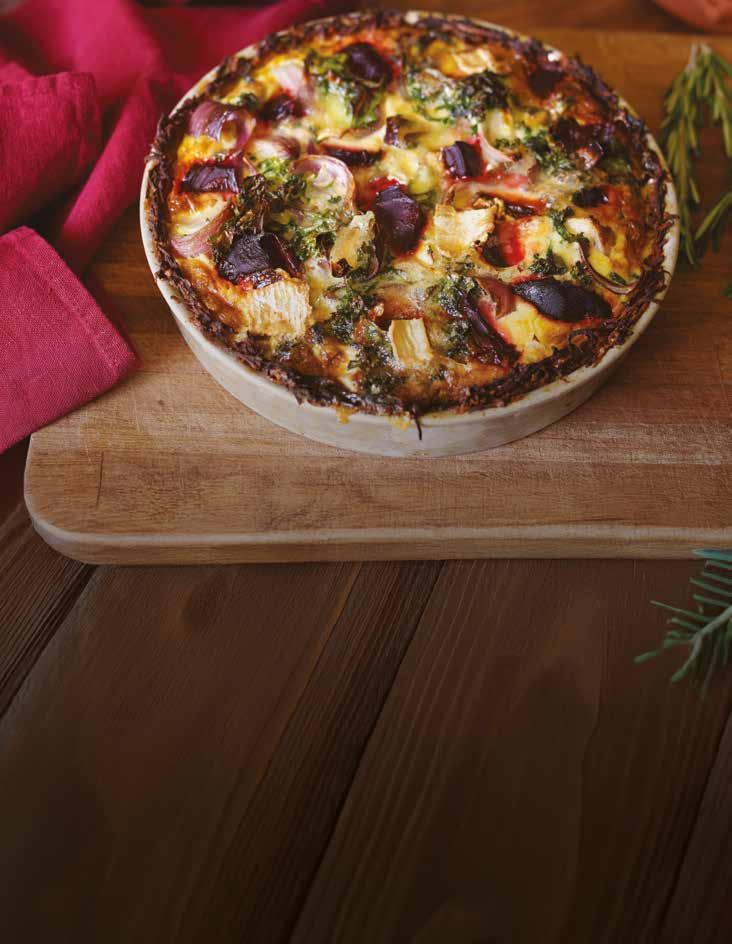
INGREDIENTS
For the crust
1tsp cold-pressed rapeseed oil
360g sweet potato, grated
1 medium egg
50g cheddar cheese
Chilli flakes
Salt and cracked black pepper
For the filling
600g beetroot, scrubbed
2tsp cold-pressed rapeseed oil
200g red onion, peeled and cut into chunks
100g kale, thinly sliced
Fresh rosemary
150g brie, cubed
For the custard
5 eggs
200ml milk
50ml double cream
Salt and cracked black pepper
100g brie, cubed
METHOD




Preheat the oven to 190C/Gas Mark 5. Brush the base and sides of a loose-bottomed 23cm sandwich tin with the oil.
To make the crust, place the sweet potato in a sieve and squeeze out as much liquid as possible. Then place in a mixing bowl and add the egg, cheese and a pinch of chilli along with the salt and pepper. Mix well.
Press the potato mix into the baking tin, making sure it’s even and well compressed. Reserve a little of the mix for filling any holes later.
Bake in the oven for 15 minutes, until the potato is set and the crust is slightly crisp around the edges. Patch any holes with the reserved mix.
To make the filling, place the beetroot on a baking tray, add a little water and wrap it up in foil. Bake in the oven for 1 hour, until soft, then remove from the oven and leave to cool.
Rub the skin off the beetroot and cut the flesh into bite sized pieces, then place in a bowl.
Heat the oil in a pan over a high temperature and fry the onions, until they change colour.
Place the kale in a pan of boiling water for 5 minutes, then drain in a colander and leave to dry.
Place the beetroot, onion, kale, a sprig of rosemary and 150g brie in a bowl and gently mix well together. Add on top of the cooked crust and shake the tin gently to level the mixture.
To make the custard, whisk the eggs, milk and cream together. Season well with the salt and pepper, then pour into the tin.
Scatter over the remaining brie and bake the quiche in the oven for 35-40 minutes before serving.
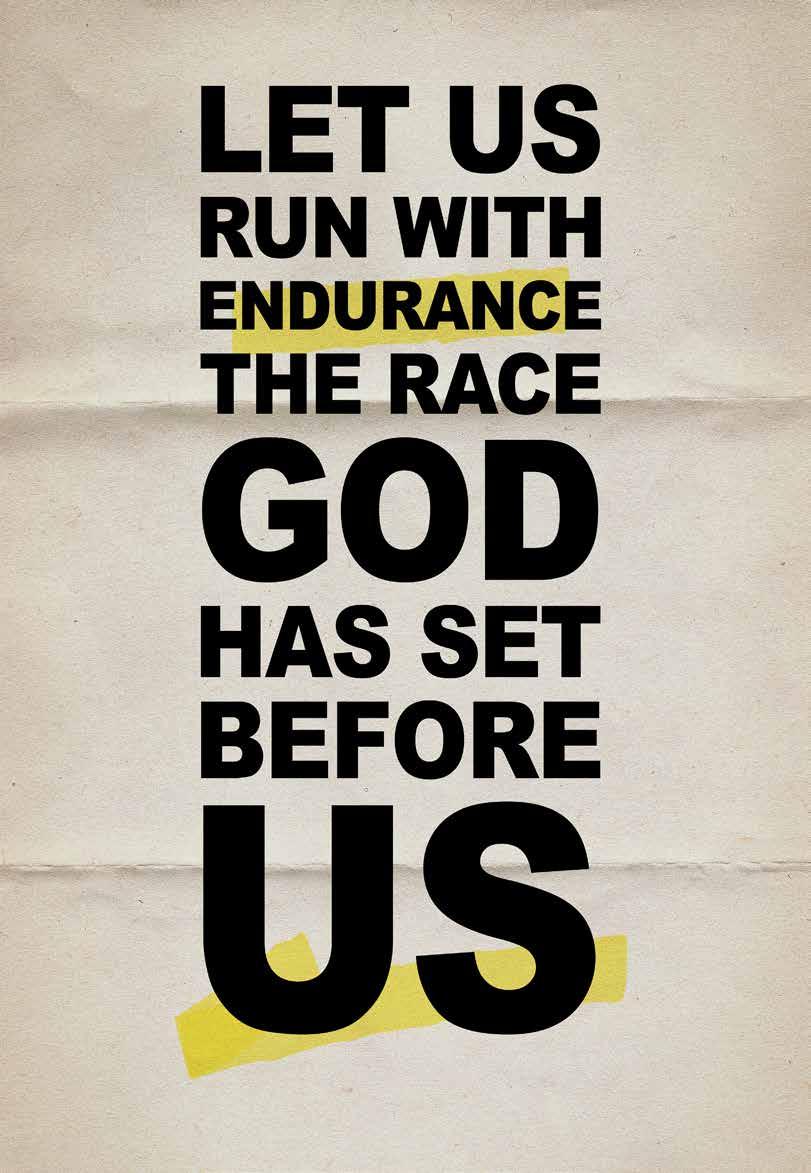
Hebrews 12:1 (New Living Translation)